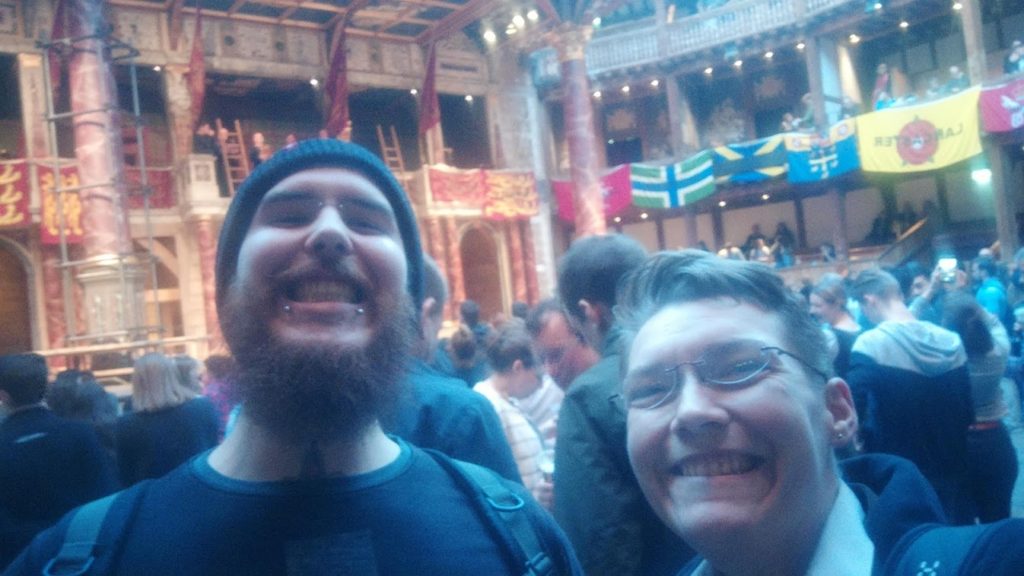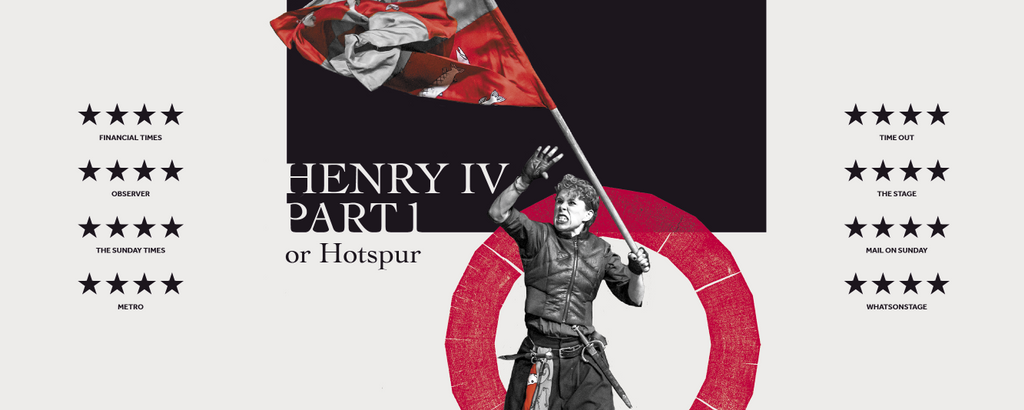Part of my effort to see every Shakespeare play.
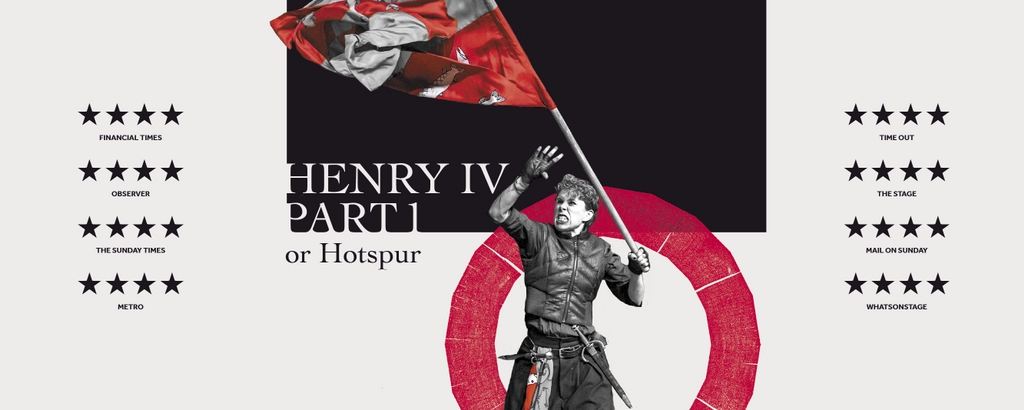
Henry IV Part 1, or “Hotspur” as they subtitled it, is one of the most popular plays in Shakespeare’s canon, which was good to see after one of the least popular. The story of a rebellion against King Henry IV by the tempestuous Sir Henry Percy leading to the castastrophic Battle of Shrewsbury where Percy is slain is intertwined with a secondary story of young Prince Hal, future Henry V, wasting his days away with a band of wastrels amusing themselves in between drinking buts with pranks and petty thefts. The bildungsroman of Prince Harry from jack-the-lad to King of England is the central plot of all three Henry plays, so the Globe decided to put all three on with the same ensemble cast to make that point.
Having come from Richard II, of which I did not have a high opinion, I was pleased to be shown what a serious play done well looked like. This play also had gender swaps (Hal is played by Sarah Amankwah, who completely nails transitioning from gadfly to heir to the throne) but it is presented as just a practical reality rather than a marketing USP. In fact, I was really impressed with the fact that at one point, one of the characters calls on his wife to sing a song for the audience and a male actor stepped out in a dress and delivers a somber song with a lyre that was initially taken with some amusement by the audience but who then immediately took the song as in the tone as presented to them.
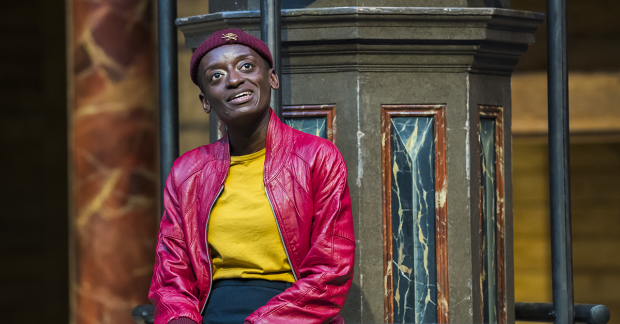
The battle scenes and drama between the two sides, royal and rebellious, is powerful and at times, when battle is finally joined, breath-taking. Michelle Terry plays the feisty and furious Percy, and, let me say it now, is fit af. I couldn’t take my eyes off her, as she justifiably dominated every scene. The difference between plays like Pericles and plays like Richard III and Henry IV in terms of their stakes and your investment in the plot is really quite, uh, dramatic.
Having said that, the show is stolen by Falstaff every time he sets foot on stage. The hedonistic companion of Hal, running away from anything that looks difficult and urging everyone to drink harder and deeper, is the comic character of the play and Helen Schlesinger blew everyone away with her performance. Again the audience interaction element of performances at the Globe came into their own with such a character.
Which was all the more significant given Falstaff kept forgetting her lines. As it happened, I’d booked my tickets for a captioned performance, so all the lines of the play was projected on either side of the stage for people to read (they do audio described and relaxed performances as well). I really like captions, and particularly for Shakespeare they make it so much easier to understand what is going on. But in this performance, it was also apparent when the actors had swapped lines, or forgotten them, and it was interesting that Falastaff did this in nearly every scene. Her efforts to cover up fluffs with little stage tricks which to an audience without captions looked like audience interaction or comic moments became somewhat obvious the second you have the script in front of you, and laid it somewhat bare. It was an unfortunate look at how the sausage is made.
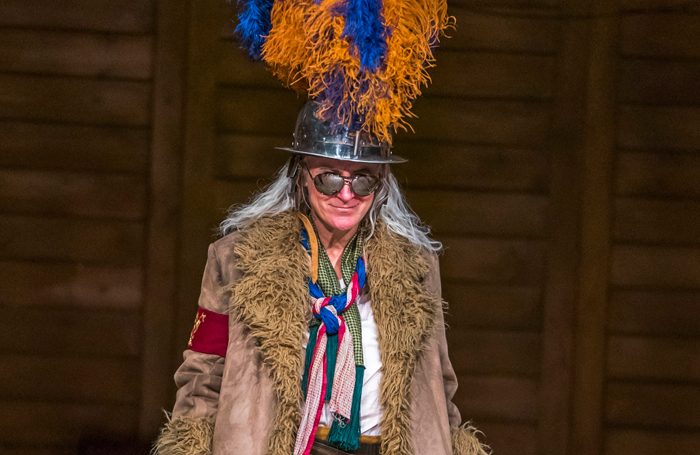
I don’t know whether for a Shakespearian audience, the events of Henry IV Pt 1 must have seemed like relatively recent history or not, but for me it certainly felt a lot closer to something “real” than the plays of antiquity like Troilus and Cressida or Pericles. The addition of the flags around the theatre of the main protagonists and the very real historical figures who shaped the England we live in today made the blurb seem more relatable than some of the others they’ve tried to sell me on:
Two Harrys: Harry Hotspur and Prince Hal.
Sons to enemy fathers: Henry Percy and King Henry IV.
Hotspur is preparing to lead an army against the King – incensed at the King’s dismissal of the Percy family’s demands.
But Hal is occupied in the pubs and streets of Eastcheap with his companion Sir John Falstaff, uninterested in his inheritance and in the fate of his country.
In a polarised England, each person must choose which truth to believe, and which cause to call their own.
Despite the drama, there was another song and dance number at the end of the play, so I guess that is a thing that the Globe just does. It was great, and I would love every theatre to bring back that tradition instead of just taking a bow.
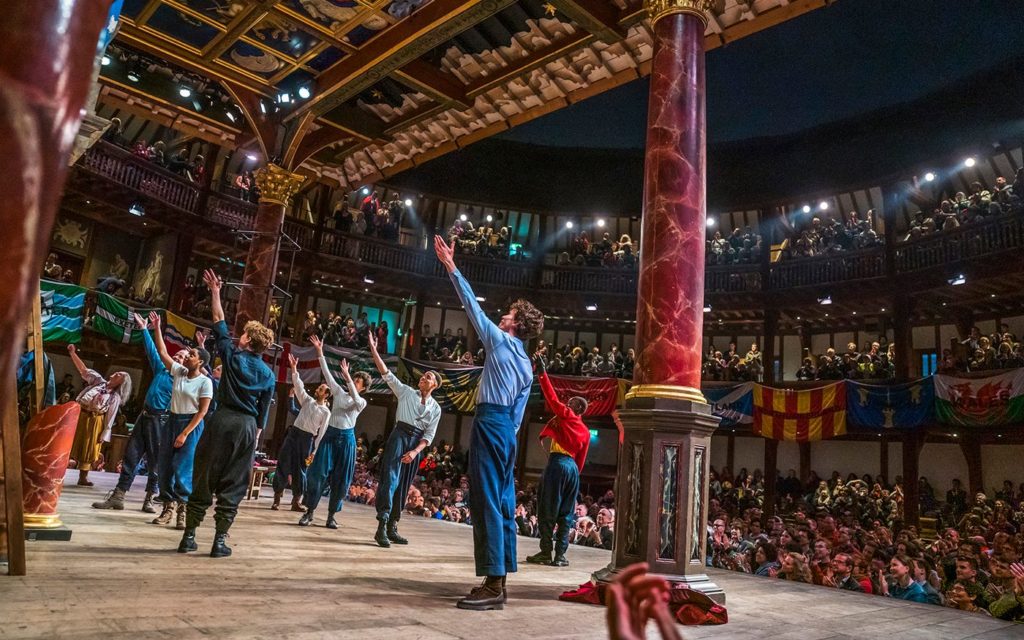
Finally, I had a spare ticket after one of my Slam crew dropped out, and after advertising it on Facebook, took a friend along who had never seen a Shakespeare play before and is more into death metal than theatre. He absolutely loved it, said it was unlike anything he had expected, Shakespeare was amazing, and that he’d had a great night out. I feel like I have graduated from a Shakespeare noob to nerd. :D
